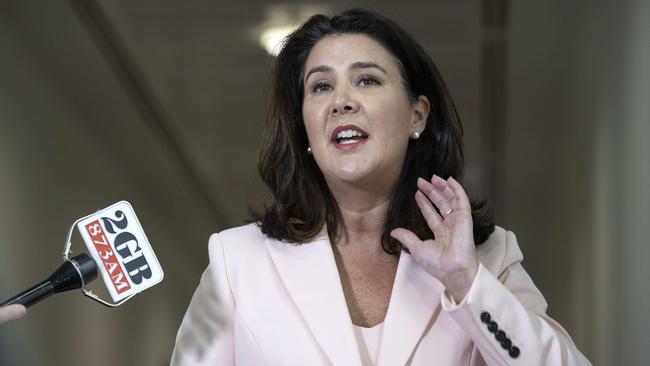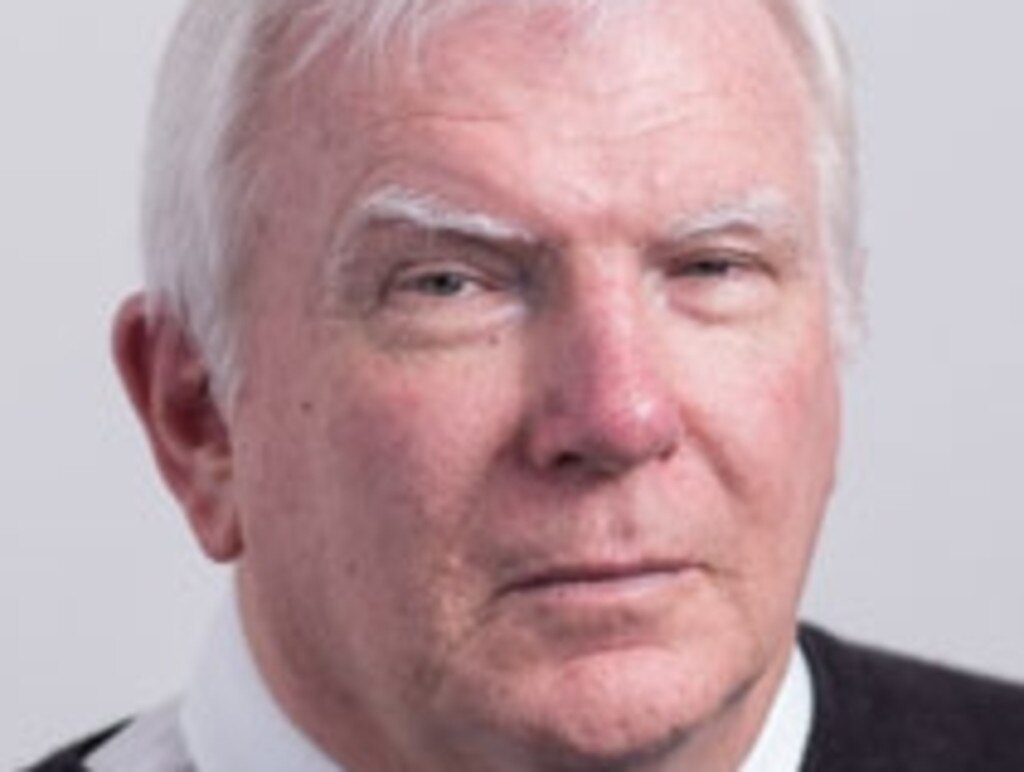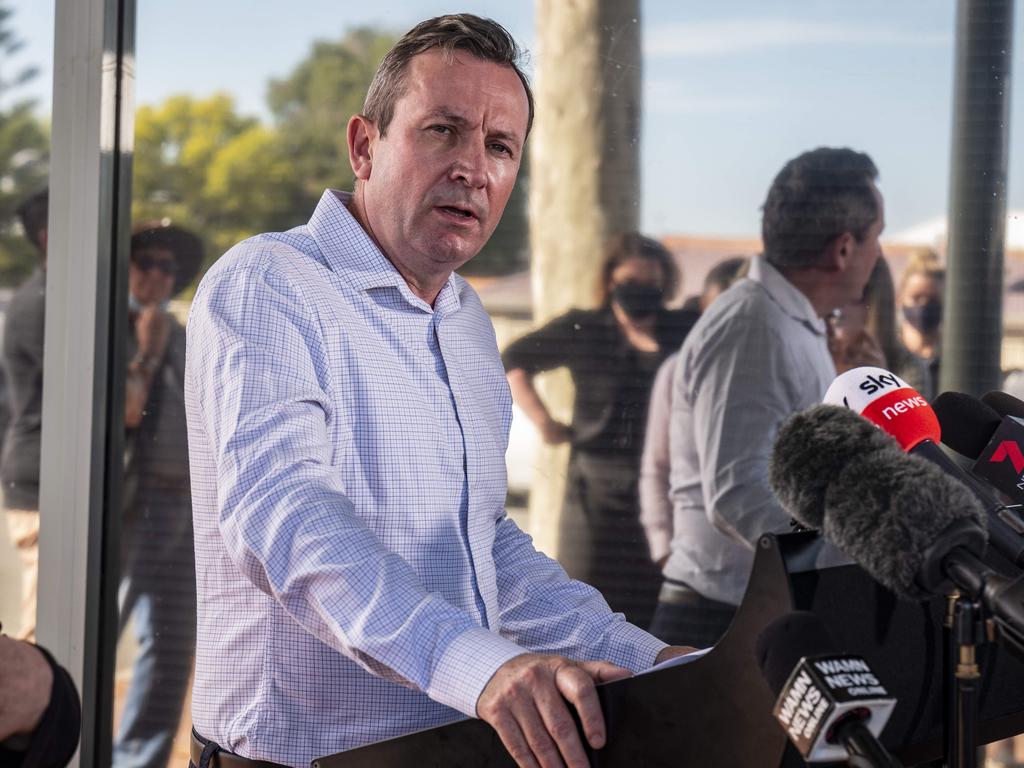Parental leave $5bn boost to economy
Business has put a plan to Scott Morrison to boost paid parental leave and expand access to childcare.

Business has put a plan to Scott Morrison to boost paid parental leave and expand access to childcare as part of a push to grow the economy by an extra $5bn a year and encourage fathers to take more time off to care for newborns.
As Josh Frydenberg aims to deliver on the government’s pledge to bolster support for essential services, the May 11 budget will also examine how it can better support female workforce participation and ensure the childcare subsidy does not serve as a barrier for working mums.
Women’s Economic Security Minister Jane Hume flagged the prospect of further action on childcare reform at the weekend. Possible changes could include a lift in the subsidy, an overhaul of the taper rate or a rethink of the $10,560 annual subsidy cap per child.
Liberal MPs, including Sarah Henderson and Katie Allen, told The Australian they supported greater action in the May budget to improve the situation of lower-income women, and Senator Henderson attacked Labor’s plan, unveiled last year, as a “policy for millionaires”.
The Business Council of Australia on Monday will release its own reform blueprint, which extends the childcare subsidy from 85 to 95 per cent for lower-income households with payments tapering at one percentage point for every $4000 in additional income over $80,000.
The BCA has cited KPMG modelling suggesting the plan would almost immediately help to grow the economy grow by up to $5bn a year, reflecting the value of extra days and hours worked.
In addition, the nation’s peak big business group is pushing for paid parental leave to be extended to 26 weeks for couples who more evenly share the entitlement. Couples who do so would be rewarded with an additional one or two weeks each of funded leave under the plan, estimated to cost $1bn a year.
The Australian also understands the government is close to finalising how it will fund its multibillion-dollar aged-care boost, speculation putting it at an additional $10bn-plus over four years, and has looked at the merits of increasing the Medicare levy and establishing a special aged-care improvement levy.
The government is considering amending the national employment standards under the Fair Work Act to provide an additional entitlement to unpaid carer’s leave, to allow Australians time off work to help elderly relatives transition into aged care.
In his initial response to the final Royal Commission into Aged Care Quality and Safety in March, Scott Morrison said he was “quite attracted to” the recommendation for carer’s leave, similar to provisions for maternity and paternity leave.
With the Prime Minister promising to boost support for women’s economic security and safety, BCA chief executive Jennifer Westacott said “a women’s’ budget is not just about fixing the cultural problems we’ve seen writ large across society, it’s also an economic imperative”.
“More than 90,000 people across Australia said they weren’t in the workforce last year mainly because of the high cost of childcare, according to the Productivity Commission,” she said.
The BCA said the state breakdown showed steep childcare costs had kept 26,800 people out of the workforce in NSW; 20,700 in Victoria; 17,900 in Queensland; 13,800 in WA; 6500 in South Australia; 2800 in Tasmania and 1200 in the ACT.
“For every dollar we invest in childcare, we’ll get $2 back. We’re proposing changes to smooth the sharp financial cliffs in the system, which discourage people from picking up extra hours or realising their full potential in their careers,” Ms Westacott said.
She also said the existing paid parental leave system was flawed because it encouraged “one parent, almost always mum, to take the lion’s share of time away from work”.
“Families should be able to make the decisions about who takes time off to care for kids without filling out hours of paperwork. Under our scheme, families would get to choose how they divide their leave based on what works best for them,” she said.
The BCA parental leave plan would allow families to decide how many weeks each parent would take, up to a maximum 18 for one parent. The total available weeks of leave would grow to 26 over an eight-year period for couples that more evenly shared the entitlement.
Ms Westacott said the measure would cost an additional $1bn a year but that the nation had spent, over the past year, $150bn on JobKeeper to keep the economy afloat. “For less than 1 per cent of that we can drive the country forward,” she said.
In his budget reply speech last year, Anthony Albanese unveiled a $6.2bn childcare plan that would remove the annual cap on the childcare subsidy and increase it to 90 per cent.
All subsidy rates would be immediately increased under a Labor government for families earning less than $530,000 — with 97 per cent of families saving between $600 and $2900 a year.
The government attacked the plan, saying a couple earning $360,000 with two kids in care 30 hours a week would receive an extra $212.16 per week compared with $32.45 per week for a couple with two kids earning $70,000.
Senator Henderson told The Australian “we need to make sure we continue to provide targeted support where it’s needed to drive our nation’s economic growth”.
“In contrast to Labor’s childcare-for-millionaires policy, I’d like to see greater support for low- and middle-income women returning to the workforce,” the Victorian senator said.
“We’ll just have to wait to see what the Treasurer announces on budget night. But as the PM and Treasurer have highlighted, there is likely to be a focus on women’s safety and economic security, which is a very good thing.”
Dr Allen, the member for Higgins, said she was a big advocate for increased support for women and warned childcare was “one of the biggest barriers” preventing women from resuming work or increasing their hours.
“Getting childcare right is very important for women and very important for the economy as a result,” she said.
“I would like to see an increased focus on women. The economy is going through a pretty significant transition at the moment. Women are well suited for the jobs of the 21st century, particularly with our focus on modern manufacturing.”
Dr Allen also said there was “no doubt” increasing access to schemes such as paid parental leave was “really important.”
“Raising children is not just a woman’s issue,” she said.
“We need to normalise men and women taking leave when children are born.”







To join the conversation, please log in. Don't have an account? Register
Join the conversation, you are commenting as Logout